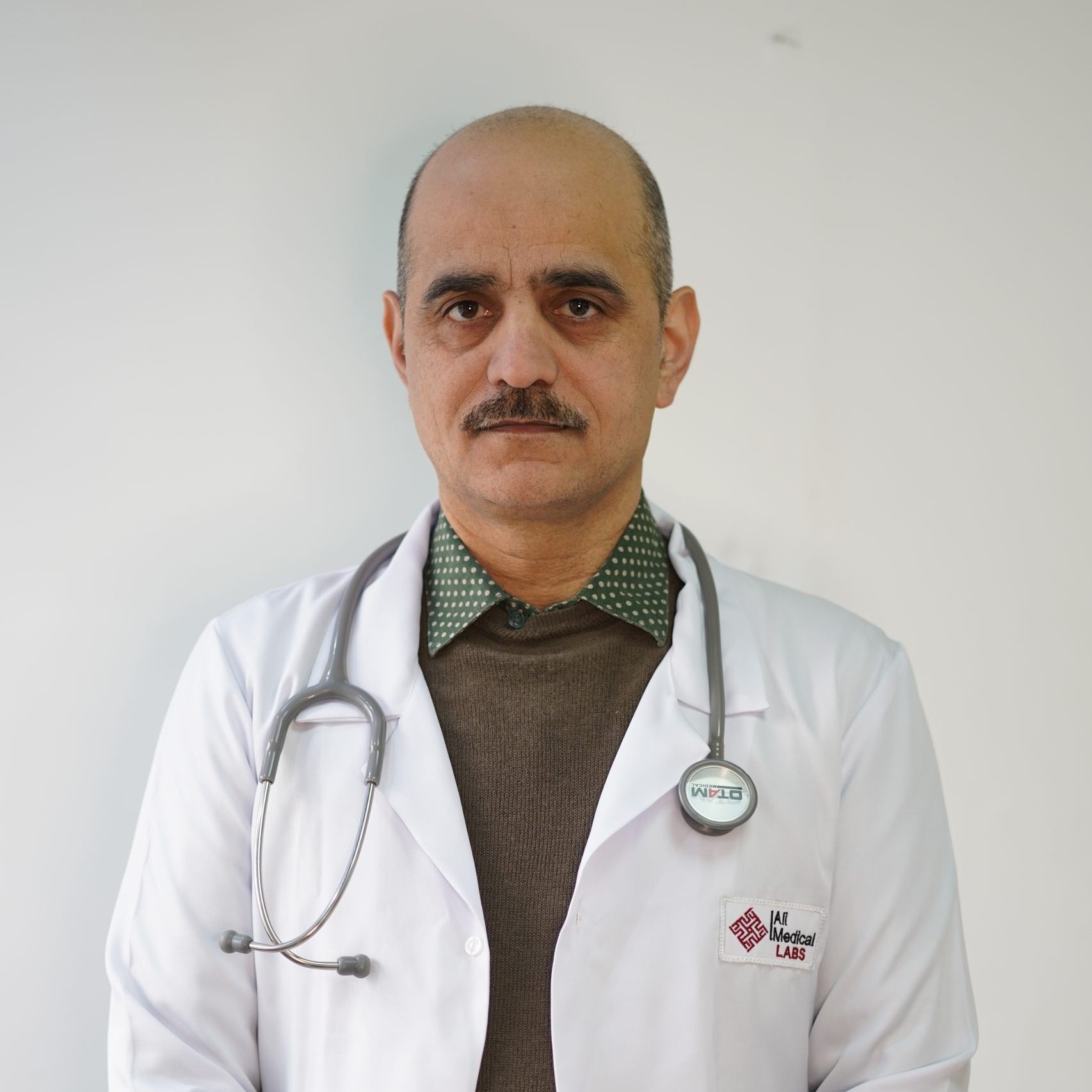The Infectious Disease Department focuses on preventing, diagnosing, and treating infections caused by microorganisms like bacteria, viruses, fungi, and parasites. Services include infection control, diagnosis, treatment, antimicrobial stewardship, travel medicine, HIV/AIDS care, immunizations, consultation, public health initiatives, education, and research.
Services:
The Infectious Disease Department offers services such as infection prevention, diagnosis, treatment, antimicrobial stewardship, travel medicine, HIV/AIDS care, immunizations, consultation, public health initiatives, education, and research.
Our Doctors
Dr. Sajid Naseem
Consultant RheumatologistFAQs
What types of infections does the Infectious Disease Department treat?
The department treats a wide range of infections caused by bacteria, viruses, fungi, parasites, and other microorganisms, including common infections like respiratory tract infections, urinary tract infections, and skin infections, as well as more complex conditions like HIV/AIDS, tuberculosis, hepatitis, and emerging infectious diseases.
How do I prevent infections?
Preventive measures include practicing good hand hygiene, getting vaccinated, avoiding close contact with sick individuals, practicing safe food handling and preparation, and following travel health recommendations.
What should I do if I suspect I have an infectious disease?
If you suspect you have an infectious disease, it's important to seek medical attention promptly. Your healthcare provider can evaluate your symptoms, perform diagnostic tests if necessary, and recommend appropriate treatment.
How are infections diagnosed?
Diagnosis typically involves a combination of medical history, physical examination, and laboratory tests such as blood tests, urine tests, imaging studies, and microbiological cultures.
How are infections treated?
Treatment depends on the type and severity of the infection but may include antibiotics, antiviral medications, antifungal medications, and supportive care to manage symptoms.
What is antimicrobial stewardship?
Antimicrobial stewardship refers to efforts to promote the appropriate and judicious use of antibiotics and other antimicrobial agents to reduce antimicrobial resistance and minimize adverse effects.
Are travel vaccinations necessary?
Travel vaccinations may be necessary depending on your destination, the duration of your trip, and your individual health status. It's important to consult with a healthcare provider or travel medicine specialist well in advance of your trip to determine which vaccinations are recommended for your destination.
How can I protect myself from infectious diseases while traveling?
Travelers can protect themselves by practicing good hygiene, avoiding contact with sick individuals, consuming safe food and water, and getting recommended vaccinations and medications for travel-related illnesses.
What is the role of the Infectious Disease Department in public health?
The department plays a crucial role in public health by collaborating with public health agencies and organizations to monitor and respond to infectious disease outbreaks, conduct epidemiological investigations, and implement disease surveillance and control measures.
Where can I find more information about infectious diseases?
You can find more information about infectious diseases from reputable sources such as the Centers for Disease Control and Prevention (CDC), World Health Organization (WHO), and local health departments. Additionally, healthcare providers and infectious disease specialists can provide personalized information and guidance.




